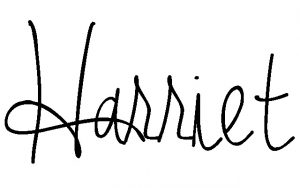Of late I have had a lot of stuffs going on in my physical and emotional life. This year (and last year) have been ones of complete upheaval and constant change; my anxiety levels are up, my stress levels are up, and I can feel myself starting to unravel.
Out of curiosity, I decided to take one of those online tests to measure the amount of stress in your life; not like, a Cosmo quiz, but a more legit one, from the American Institute of Stress. I’m sure there are questions about the scientific validity of such a thing, but I decided to do it anyway to at least give myself a good idea of where my stress levels were relative to that of a healthy, normal human.
So, you go through the list, count up all the points for things that apply to you for the last 12 months, and then figure out where your score falls.
- 150 points or less: you are totally chill and there is very little chance that stress is affecting you in any serious way.
- 150 – 300 points: you have some significant stress in your life, and, if you don’t take steps to chill the hell out, within the next 2 years it’s likely that you will suffer some kind of major health breakdown as a result.
- Over 300 points: Uh, you have Issues, and also an 80% chance of having that major breakdown sometime in the coming months. Time to step back and reevaluate. Now. Reevaluate now!
My score: 642.
Basically, I’m a walking time-bomb of anxiety. Part of this I knew already, but I was legitimately shocked to see how high my stress levels were, and how long I’ve assumed it’s just normal to have that kind of anxiety and upheaval on a daily basis.
I wish I could tell you that since taking this quiz I’ve completely changed how I run my life to reduce my overall stress and anxiety…but that’s not true either. Being aware of my number is helpful, but truly, it’s only helpful if I use that awareness to do something about the ticking anxiety bomb in my chest.
I can’t do anything about the major life upheaval stuff except wait it out. I can’t un-move, un-take a new job, change some of the big pieces that have added stress and frustration and anxiety into my life. It is what it is, and I just got the unlucky set of cards to get all that stuff all at once.
But I’ve been doing little things that I hope make a difference:
- I have been puttering around with my plants in the garden, I count 9 tiny baby cucumbers, I’ve already harvested kale for some salads, and the lettuce patch is growing nicely. I often think those little boxes of veggies are the only thing I love about being outside here (for the record, it’s still in the 90s everyday, which is 10-15 degrees too hot for my outside comfort. WHERE ARE YOU, WINTER!?).
- I have been quite careful about what I put into my body for the last 6 months. I eat very little sugar or white starchy food, I don’t skip meals, and I drink lots of water. I also have treats every so often, I’m not living a diet of austerity, but I have tried to keep my blood sugars more even, and I hope that helps me keep balanced overall.
- I have stayed far, far away from Facebook for weeks. I honestly don’t know if I’ll sign back on until after the election. I consume my other social media feeds carefully and try really hard to stay away from rhetorical tornadoes because I just cannot deal with so much blatant stupidity and ignorance. I’m sure I’ve missed a lot of lovely things as well, but until I have the bandwidth to clean up some of my feeds (block, unfriend, hide, block, block, block), I’m just going to steer clear.
- I still go to the gym a few times a week, usually for about 90 minutes. I can’t actually tell a big positive difference when I go, but if I miss too many days in a row I get jumpy and antsy and the hamsters in my brain start reeling out of control. So, I gym.
- I’ve been listening to audiobooks like it’s my damn job; 2 hours (or more) every day during my commute, plus at the gym, plus usually when I run errands as well. I listen to most books at double speed and am churning through them like crazy, three or four a week is pretty normal, plus the paper books I’m reading. It’s easy to escape into those pages and stories and characters and facts, and it helps keep my brain calm and focused instead of wandering and spinning without something to grab on to (or, whipping itself into a ragey frenzy while sitting in endless rush hour traffic. Audiobooks all the way!).
- I try to make plans in advance and keep meticulous check lists. I have a constant grocery list on the fridge, right next to the menu list which is a complete meal plan for the week, including notes about what I need to take out of the freezer for the next day, or other prep. I keep a list for work tasks, one for household chores, one for blog post ideas, another for budget and savings requirements, and another for fun things I’d like to do or try, so if I have an hour I simply check the list and pick one instead of spending 20 or 30 minutes trying to figure out how to effectively use my time. Plans often change, and I’m not a super stickler on sticking to The List, but having that plan in place to start with greatly reduces the anxiety of figuring out where to start.
What do you do to keep yourself balanced? Do you think you have too much stress in your life? What are things that you feel you can legitimately drop? Must keep? How do you keep on adulting with too many things in your court and not enough time or energy to deal with them?



